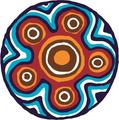Year 7 Term 3 Overviews

Humanities
Over the course of this term, students will be immersing themselves in Ancient China. They will deepen their understanding of continuity and change through analysis of sources and making comparisons between modern day and Ancient China. Students develop and apply historical questions to support the process of historical inquiry, when using historical concepts and sources across the range of historical contexts. Students explain the features, content and context of primary and secondary sources and apply historical questions when drawing inferences from sources. We will start by focusing on The Silk Road and Ancient China’s Society before shifting our focus to Modern China to examine how China has sustained its legacy in innovating trade and commerce..
Science
In Chemistry, in Term 3, Year 7 Science students will explore different states of matter, solids, liquids, and gases, by understanding how they differ in shape, volume, and particle arrangement. They will examine the particle nature of each state, noting that solids have tightly packed particles, liquids have loosely connected ones that slide past each other, and gases have freely moving particles. Learners will also study how heating and cooling affect matter, causing changes of state like melting, freezing, and evaporation, all of which are physical and reversible. Density will be introduced as a way to relate mass and volume (Density = Mass ÷ Volume), helping learners understand why some objects float and others sink based on their density compared to that of the liquid they are placed in. In Physics, students will be introduced to energy as the ability to do work, exploring various forms such as kinetic, potential, thermal, and electrical energy. They’ll learn formulas for calculating energy, like kinetic energy (½ × mass × velocity²) and potential energy, and investigate how energy can transform from one type to another—for example, chemical energy in a battery becoming electrical energy. The law of conservation of energy will be emphasised, stating that energy cannot be created or destroyed, only transformed. Learners will also discuss concepts such as energy efficiency, dissipation (loss of energy as heat or sound), and what happens when moving objects stop—how kinetic energy is transformed and spread out, often becoming less useful.
Technologies
Woodtech: In Term 1, the year 7 cohort will explore where timber comes from and the processes it must undergo to become usable for various purposes. Students will learn about timber defects, properties of the different types of wood that make them suitable for different purposes. They will develop an understanding of the correct operating procedures for different hand tools as well as exploring safety considerations associated with each. Students will be introduced to joinery and explore the features that make different joints suitable for different types of furniture projects. Students will develop their joinery and hand tool skills by making finger joints, mortise and tenon joints and halving joints.
English
For Term 3 English, Year 7 students will embark on reading Chinese Cinderella which will focus on themes, character experiences, historical elements and take the reader on a unique journey through a historical fictional lens. They'll also summarise key plot elements and compare the significance of different themes. The curriculum includes examining bias, prejudice, mistreatment, stereotypes, sexism, and racism, analysing their portrayal in texts, and discussing their effects on characters. Additionally, students will intergrate social messages and morals from the texts to present-day examples, study ethical and unethical positions, and map the chronology of events. Students will indulge in independent reading, use Cornell notes as a systematic way to record questions, evidence, and record notes. Throughout the unit, students will also apply comprehension strategies to interpret and evaluate the text by citing key evidence to support their viewpoints.
Maths:
In Term 3, Year 7 students will deepen their understanding of algebra by using variables to represent formulas from real-life situations and substituting values into those formulas to find unknowns. They will apply the associative, commutative, and distributive laws to simplify and expand algebraic expressions. Students will also explore linear relationships by solving one-variable equations, creating tables of values, and plotting these relationships on the Cartesian plane. They will investigate how variables change in relation to each other and interpret the patterns and trends shown in graphs. In Geometry, students will describe and perform transformations—translations, reflections, and rotations—on the Cartesian plane. Finally, in Probability, they will identify possible outcomes for simple chance experiments, assign probabilities, and conduct simulations using digital tools. They will compare predicted and observed outcomes, considering how sample size affects reliability.
